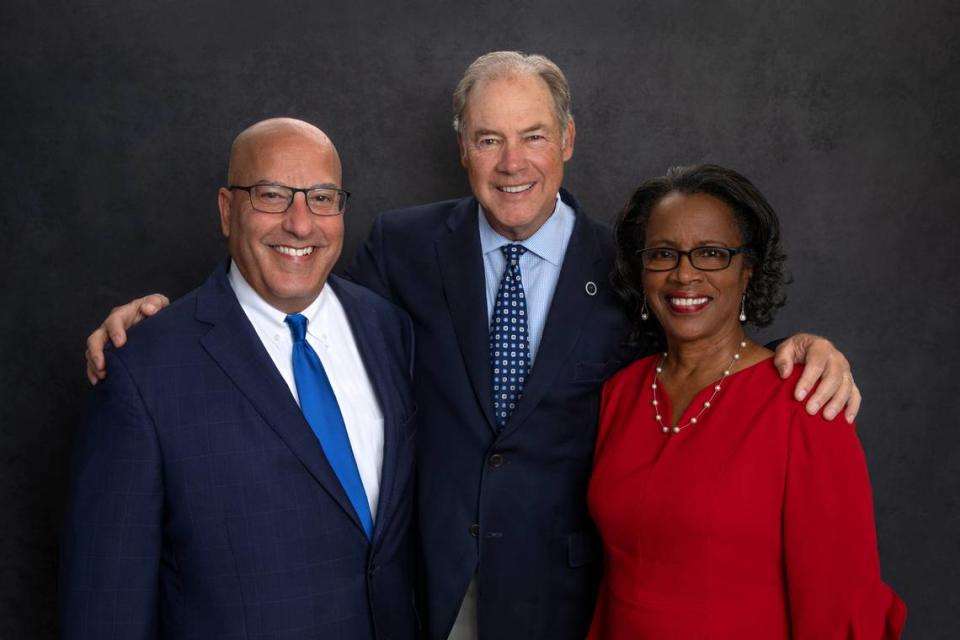SC religious group got controversial $1.5M earmark to build school. Now it’s giving it up
A South Carolina nonprofit at the center of a legal battle over the public funding of private schools has withdrawn its claim to $1.5 million in state funding, court records show.
Christian Learning Centers of Greenville County, a religious education provider that was awarded the money last year to build a school for at-risk children, recently rescinded its request for the funds, according to emails obtained through a public records request.
The money had been tied up since last December pending the resolution of a lawsuit challenging the constitutionality of the distribution.
The suit, filed by the Wisconsin-based Freedom From Religion Foundation, argued the $1.5 million earmark violated the “no-aid” clause in South Carolina’s Constitution, which prohibits the direct funding of private and religious educational institutions.
The same constitutional provision prevented Gov. Henry McMaster from carrying out a 2020 plan to award private school tuition grants and is the basis for a recent lawsuit filed over South Carolina’s new school voucher program.
Christian Learning Centers asserted its earmark was legal under both the state and federal constitutions, but nonetheless opted to relinquish its claim to the money rather than endure a protracted legal process.
“In light of the time commitment and delay caused by the litigation — which, including appeals, would stretch on for several more years — CLC Greenville has decided to focus its time and energy on other ways of serving public school students of Greenville County,” Miles Coleman, the group’s attorney, said in a statement.
A South Carolina circuit court judge on Thursday ruled the earmark lawsuit moot due to the Christian nonprofit’s decision to permanently disclaim the appropriation, but declined to weigh in on the legality of the $1.5 million award.
Judge George McFaddin, Jr. wrote it was unnecessary to address the earmark’s constitutionality because doing so at this point would have no practical legal impact.
“No matter what the Court rules,” McFaddin Jr. wrote, “the challenged funding will not be disbursed to CLC.”
Steven Edward Buckingham, an attorney for the plaintiffs, said he was pleased with the ruling.
“While we would have loved to have had a judicial determination that the money couldn’t be spent, we at least got the commitment that the money won’t be spent,” he said. “So we’re putting this one in the win column.”

The General Assembly’s passage of the controversial Christian Learning Centers earmark first came to light in August 2022, when The State Media Co. reported on its quiet inclusion in South Carolina’s spending plan.
CLC Greenville, a provider of released time Bible instruction, requested the money to build a “first-of-its-kind, state-of-the-art residential school” for disadvantaged middle and high school students in Greenville County.
A project proposal sent to the governor’s office said the school would incorporate biblical instruction in all student development activity programming. The project’s architectural renderings included a chapel — “the most important space in the whole facility” — where staff could “petition God for the direction of the school’s mission and success.”
After The State newspaper raised questions about the plan, Christian Learning Centers’ CEO and the earmark’s legislative sponsors claimed there had been a misunderstanding. CLC Greenville CEO Janice Butler said the organization was not building a private religious school, but rather a “school-type building” where local public school students could learn life skills and receive academic tutoring and mental health counseling.
Christian Learning Centers dropped that concept shortly after the lawsuit was filed and announced it would instead open a non-sectarian public charter school with the money.
The organization subsequently contracted with a for-profit education management organization to set up the school. Under the terms of the contract, CLC Greenville agreed to transfer the proceeds of its earmark into an account controlled by Reason and Republic, LLC and pay the Anderson-based company $8,000 a month for administrative, advisory, back-office and consulting services.
Payment was contingent upon receipt of the state budget earmark, which the Department of Education never disbursed and Christian Learning Centers has now irrevocably forfeited.
It’s not clear whether the religious nonprofit still intends to open a charter school.
Butler, the organization’s CEO, did not return requests for comment or respond to emailed questions about CLC Greenville’s plans.
The nonprofit did not submit a letter of intent by the recent filing deadline for charter schools planning to open during the 2025-2026 school year, S.C. Department of Education records show.

